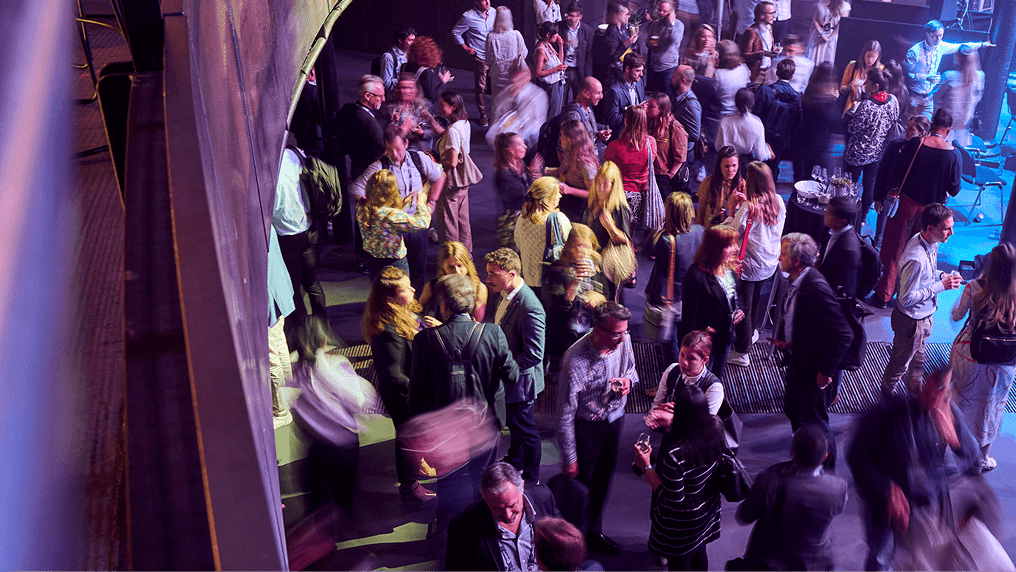Institution: University of Portsmouth
Location: Portsmouth, UK
Focus Area: Sustainability and the Environment, Circular EconomyCircular EconomyA systems solution framework that tackles global challenges like climate change, biodiversity loss, waste, and pollution. It is based on three principles, driven by design: eliminate waste and pollution, circulate products and materials (at their highest value), and regenerate nature. related teaching, Research and Innovation, Plastics and Alternative Materials, Recycling
Expertise: Enzyme Research for Plastics recycling, Composite materials, Green and Circular practices, Sustainable Fashion and Upcycling
University Overview:
With a campus located in the heart of Portsmouth, (UK), the University is home to several world-leading research groups that are pioneering work on the environmental and societal dimensions of plastic use, the impacts of plastic waste, and the importance of circular processes. Vice Chancellor Professor Graham Galbraith has announced that by 2030, the University of Portsmouth will be the UK’s top modern university and one of the top 100 young universities in the world. One of the University’s priorities will be to lead on environmental sustainability and become climate positive by 2030. Read more about the University Vision 2030 and Strategy 2025.
Scientists at the University’s Centre for Enzyme Innovation have successfully developed a naturally occurring enzyme which can digest some of the most commonly polluting plastics. The University of Portsmouth was one of the first to sign up to the Ellen MacArthur Foundation’s (EMF) New Plastics Economy Global Commitment. The Advanced Materials and Manufacturing research group are working on hybrid composite materials from natural fibre composites and bio composites that could provide practical alternatives to plastics. In the Faculty of Business and Law, researchers are working on circular economy initiatives and consumer behaviour to explore innovations in packaging design and use. In the Faculty of Creative and Cultural Industries, the group working on sustainable and circular fashion is giving a second life to various waste products.
Key Projects:
Centre for Enzyme Innovation(CEI) – Funded by Research England (Expanding Excellence Fund) and the University itself, this centre is a place for learning from the natural world and working to deliver transformative enzyme-enabled solutions for circular recycling of plastics. The pioneering research (led by Prof. John McGeehan) on plastic-eating enzymes has won the 2019 Research Project of the Year (STEM) at the Times Higher Education (THE) Awards
Centre for Blue Governance(CBG) - The university’s newest Centre, due to launch in Feb 2020, aims to meet the holistic and multi-disciplinary research needed to inform blue governance mechanisms. The work encompasses numerous sub-topics under four central themes: Blue policies, planning and security; Blue energy, technologies and transport solutions; Biodiversity, blue carbon and climate change; Aquatic resources management. (Led by Prof. Pierre Faillerand Dr. Sui Phang
NEREUS- New Energy and REsources from Urban Sanitation – This Interreg 2 Seas funded project will tackle the common 2SEAS area challenges by furthering the development of green economy and transforming wastewater into a valuable source of water, resources (e.g. cellulose, nutrients), and energy that could be reused. (Led by Prof. Djamila Ouelhadj
PlastiCity This is an Interreg 2 Seas funded project. The 2S region, covering coastal areas of England, France, Belgium (Flanders) and the Netherlands, is one of the most proliferative regions in the EU when it comes to generating plastic waste, but overall, plastic recycling rates are incredibly low (20-30%). The objective of the project is to develop replicable strategies and solutions that are able to increase recycling rates in urban environments from 20-30% to over 50% by unlocking the use of ‘lost plastics’ as secondary resources from the urban environment. (Led by Prof. Diego Vazquez-Brust
SeaBioComp– This Interreg 2 Seas funded project is a collaborative project concerning the development and demonstration of durable bio-based composites for a marine environment with the aim to develop and produce novel bio-based thermoplastic composite materials and the analytical protocols to evaluate long-term durabilitydurabilityThe ability of a product, component or material to remain functional and relevant when used as intended. and reduced ecological impact on the marine environment. (Led by Prof. Hom Dhakal)
Horti-blueC– This is an Interreg 2 Seas funded project. The objectives are the adoption of new circular economy solutions in the 2 Seas area by sustainable up-cycling of agro-, agrofood and fisheries waste residues in horticulture and agriculture, as bio-energy, biochar and chitin-rich products. Up-cycling and combining resources for sustainable soilless greenhouse cultivation into one concept based on sustainable growing media, greenhouse heating and CO2 fertigation. (Led by Dr. Cressida Bowyer)
FLOWER– ‘Flax Composites, LOW weight, End of life and Recycling’. This Interreg Channel funded project brings together four academic partners (University of South Brittany in Lorient, INRA in Nantes, University of Cambridge and University of Portsmouth) and four industrial partners located on both sides of the English Channel. Partners’ complementarity allows to span the entire value-chain, from the agricultural production of flax fibres to the R&D of materials and the commercialisation of end-products in industries. (Led by Prof. Hom Dhakal)
Connect with:
Dr Matthew Anderson, Senior Lecturer in Business Ethics
Professor Stephen Fletcher, Professor of Ocean Policy and Economy
Find out more:
Courses:
Campus management activities: The University is doing numerous things at a campus level to reduce waste and embed circular practices. Examples include compostingcompostingMicrobial breakdown of organic matter in the presence of oxygen. of all food waste at the University; the use of glass milk bottles for any event catering (these are then cleaned to be reused for the next event); cooking oil (a vegetable oil) is turned into biofuel by a charity organisation (Yateley), which is then bought back by the University to power its catering vans; the re-use of broken slates that had been removed as part of refurbishment from the university’s roof and turned into trays to be used for catering events. (Contact Mr. Nick Leach – Head of Catering and Mr. Ian McCormack – Energy and Environment Manager for further information.)
Student-led activities: The Student Union at the University leads in a number of circular and waste-reducing activities, such as: recycling reward-schemes, food banks, recycling hubs for materials not locally recycled (such as batteries, clothes, bras), clothes swap and events where students can drop off their old belongings to give back to the local community as part of ‘Do 1 Thing’.





